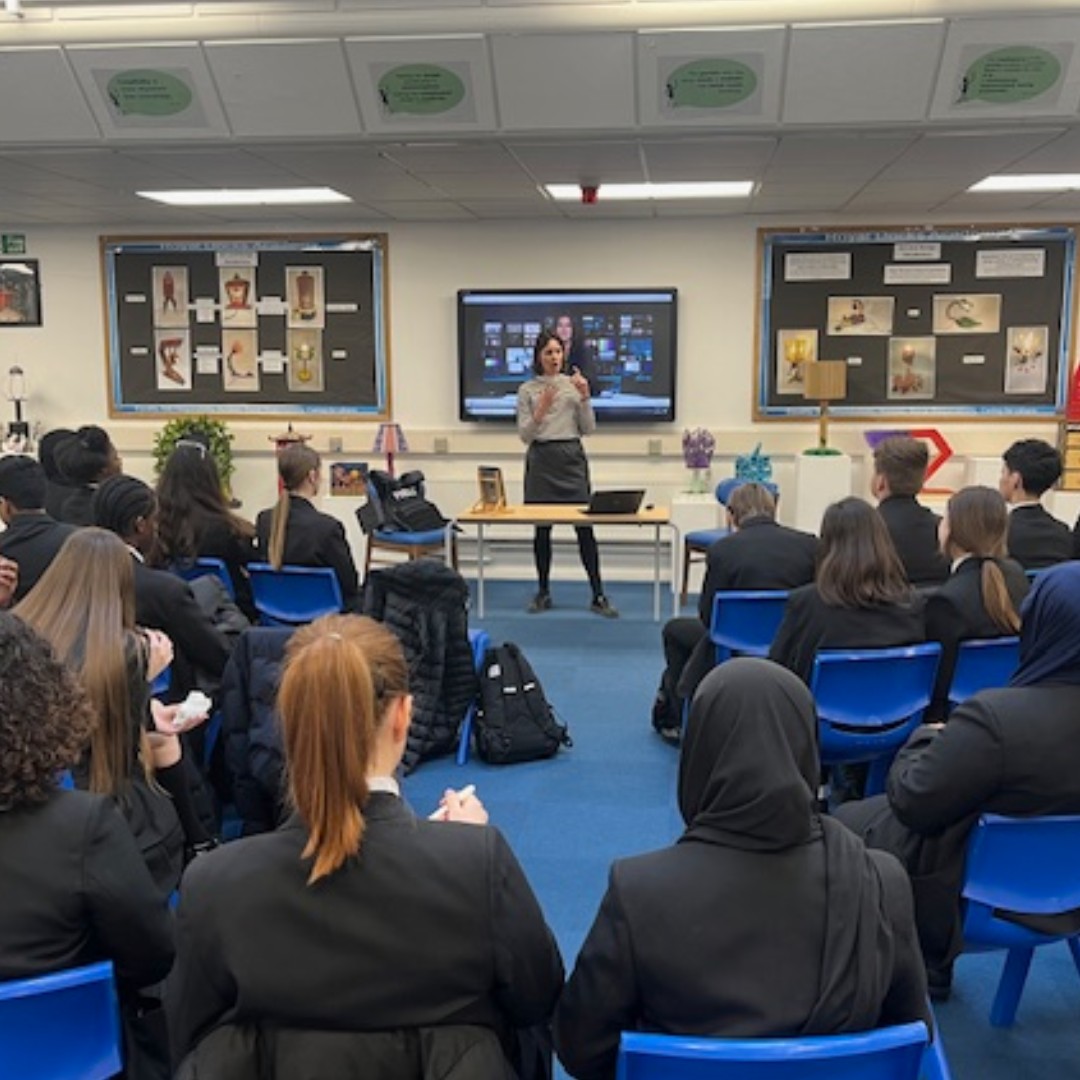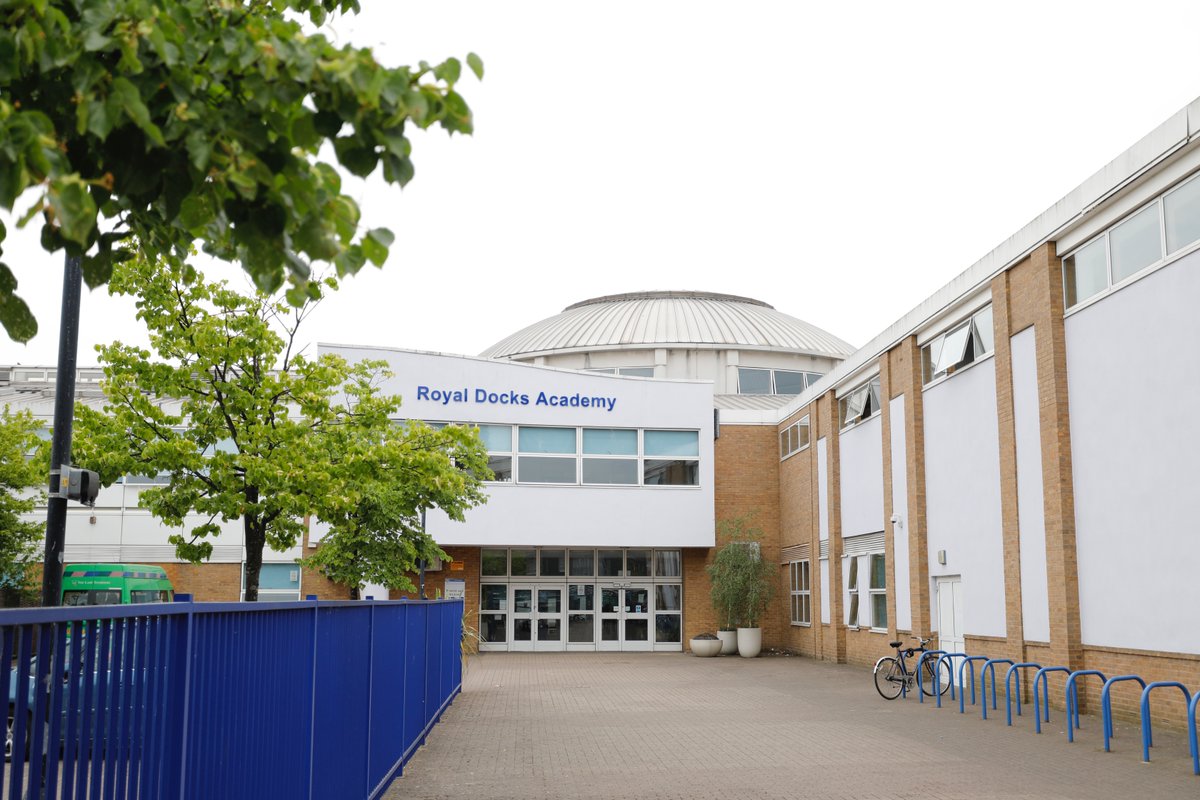Excellence in Pupil Development Award
Excellence in Pupil Development Award (EDPA)
At Royal Docks Academy, we are proud to be working towards the Excellence in Pupil Development Award (EDPA). This national award recognises schools that place pupil well-being, personal growth, and character development at the centre of their ethos.
The EDPA supports our commitment to developing the whole child – academically, socially, and emotionally – so that every student leaves our school as a confident, responsible, and compassionate young person ready for life Britain and the wider world.
Our Aims:
- To provide a school environment where all pupils are supported to grow in confidence, resilience, and empathy.
- To ensure that pupil development is embedded across all areas of school life, from curriculum design to pastoral care.
- To equip students with the life skills, character, and leadership qualities they need to succeed beyond the classroom.
- To empower every pupil to have a voice and take an active role in shaping their school community.
- To work in partnership with parents, carers, and the wider community to strengthen pupil development outcomes.
Our Objectives:
We are committed to providing opportunities for every student to explore who they are, develop strong values, and understand their place in the world. This includes:
- Delivering a broad and inclusive curriculum that prioritises personal development alongside academic success.
- Offering mentoring, enrichment, and leadership opportunities that build character and self-belief.
- Embedding pupil voice through school councils, ambassador programmes, and feedback forums.
- Recognising and celebrating pupil achievements in all aspects of school life.
- Continuously evaluating our practice to ensure we meet and exceed the standards of the Excellence in Pupil Development Award.
Through our work towards the EDPA, Royal Docks Academy is committed to ensuring every child feels valued, supported, and inspired to achieve their personal best.
British Values – Curriculum Statement
At Royal Docks Academy, we are dedicated to promoting the Five Fundamental British Values that underpin life in our school, our community, and the wider world. These values guide how we learn, interact, and contribute as respectful, responsible, and active citizens.
The five British values are:
- Democracy – Encouraging pupils to have a voice, express opinions, and understand how decisions are made fairly.
- Rule of Law – Helping students understand the importance of laws, boundaries, and responsibility in maintaining a safe and fair society.
- Individual Liberty – Supporting pupils to make informed choices, express themselves freely, and develop confidence in their own identity.
- Mutual Respect – Teaching the importance of treating others with kindness, courtesy, and understanding.
- Tolerance of Different Faiths and Beliefs – Promoting understanding and appreciation of the diverse cultures, faiths, and traditions that make up both Britain and the wider world.
At Royal Docks Academy, these values are not treated as isolated topics but are woven throughout our curriculum, ethos, and daily life. They shape our school culture and help our pupils understand the importance of fairness, freedom, and respect for others — preparing them for life in Britain and beyond.
Through our Citizenship lessons, PSHE programme and assemblies, pupils learn what these values mean in practice. Our pupils take part in debating in class, voting in the School Council elections and learning about global religions in RE. Our students live out these principles every day.
We believe that British Values are not just taught — they are experienced. Every pupil at Royal Docks Academy is supported to develop the confidence, empathy, and moral understanding needed to make a positive difference in their community and the wider world.
British Values – Curriculum Overview Plan
Our approach to teaching British Values is structured, progressive, and consistent across all year groups. Each value is introduced, revisited, and reinforced through lessons, assemblies, leadership opportunities, and enrichment activities.
Democracy
- Introduced in Citizenship, where pupils learn about how the UK is governed, the role of elections, and the importance of voting.
- Reinforced in school wide provisions such as School Council, Ambassadors, and other pupil leadership roles where students practise decision-making and representation.
Rule of Law
- Taught in Citizenship and PSHE to help pupils understand why laws exist, how they are made, and how they protect individuals.
- Reinforced daily through the school’s behaviour expectations, restorative practices, and reward systems that promote fairness and responsibility.
- Linked across the curriculum, such as PE (team rules and fairness) and History/ Citizenship (development of justice systems).
Individual Liberty
- Promoted throughout the school by encouraging students to make choices and express opinions in a respectful, safe environment.
- Taught in PSHE through topics like human rights, online safety, and personal responsibility.
- Reinforced in assemblies that celebrate individuality, confidence, and self-expression.
Mutual Respect
- Central to our school ethos and modelled by staff and pupils daily.
- Explicitly taught in RE, PSHE, and Citizenship, where students explore empathy, equality, and diversity.
- Strengthened through collaborative learning, sports, and co-curricular activities that encourage teamwork and understanding.
Tolerance of Different Faiths and Beliefs
- Embedded throughout RE, where pupils study a range of world faiths and cultures.
- Revisited in Citizenship through discussions on community cohesion, and diversity in modern society.
Whole-School Implementation
- Pupils study the Five British Values in detail within the Citizenship curriculum, forming the foundation for their understanding of rights, responsibilities, and diversity.
- Assemblies: Regular assembly themes are interconnected to the values.
- Leadership and Voice: Pupils experience democracy and respect first-hand through roles such as School Council representatives and ambassadors.
- Community Links: Partnerships with organisations and charities allow pupils to engage meaningfully with others and put these values into action.
Impact
By the time students leave Royal Docks Academy, they will not only understand the Five British Values but will have demonstrated them in action. They will recognise their rights and responsibilities, value diversity, and contribute positively to society — both in Britain and in the global community.





















